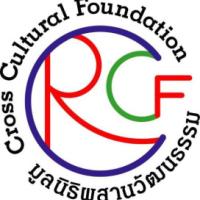
21 September 2012
- Urgent -
Public Statement
Fourth Army Area urged to explain the invoking of Martial Law
to hold in custody a human rights activist in the Southern Border Provinces
On 20 September 2012 at 19.00, by Mr. Thammarat Alilatae was “invited” for an inquiry and held in custody by military officers. He was taken away from his home after finishing his teaching at a school in the province of Yala. Until now, Mr. Thammarat has still been held in custody at Taskforce 11 Yala invoking the 1914 Martial Law Act, and neither he nor his relatives have been informed of the reasons for the arrest.
Mr. Thammarat Alilatae is a member of the Network of defendants in security-related cases who have been temporarily released pending the trial. A former student of a Yala’s university, Mr. Thammarat was once arrested and held in custody in 2007. Security-related charges were later pressed against him, and he has been bailed out pending the trial in the Provincial Court of Yala. After being temporarily released, Mr. Thammarat has never attempted to run away, nor has he tampered with evidence or caused other kinds of danger. He is determined to prove his innocence through the justice process. It shows how much importance and confidence he places on the justice process and the rule of law in Thailand. Mr. Thammarat and other former defendants in security-related cases have been conducting human rights activities and have garnered acceptance from families of those being affected by the use of special laws. His Network aims to enhance access to justice among affected people. Nevertheless, as a result of his and his colleagues’ work, their lives have been put under peril. Insofar, three of his colleagues have been killed and none of the perpetrators have been brought to justice amidst a lack of progress in investigation. Therefore, on 15 September 2012, Mr. Thammarat and his colleagues decided to submit a letter of petition to Pol. Col. Tawee Sodsong, Secretary-General of the Southern Border Provinces Administrative Center (SBPAC) and later he gave an interview to the press concerning his demand for justice and protection and the assassinations of his three colleagues in the past one year.[1]
The Cross-Cultural Foundation (CrCF) notes that an attempt to form a network of mutual help among the former defendants who have been acquitted by the Court and the incumbent defendants who have been temporarily released could be a factor that has made Mr. Thammarat and his colleagues become a target of security agencies. If the security officers abide strictly by their declared policy to pursue political solutions rather militaristic solutions and to uphold rights and to genuinely engender confidence among people who share different ideas from them, any arrest and detention invoking Martial has to be conducted with utmost caution and only when it is exceptionally necessary.
Initially, CrCF has been informed that Mr. Thammarat shall be treated properly should he refrain from misbehaving and breaking the law. But that his arrest and detention took place at night time by the virtue of Martial Law reflects how the military officers still hold on to their absolute power provided for by these special laws. It also shows a lack of checks and balances by other agencies. Though an attempt has been made to communicate with superior officers to urge them to let Mr. Thammarat go should there be no suspicion that he has been involved with the commission of any violence or illegal activities, but insofar, we have not received any response from the agencies concerned. And Mr. Thammarat has now been held in custody for more than 16 hours, since 19.00 of 20 September 2012 and there seem to be no appropriate and proportionate reasons to justify the arbitrary deprivation of his rights and liberty.
CrCF urges that the agencies that still hold a person in custody invoking Martial Law make an attempt to raise awareness among local people and human rights activists that the demand for human rights through nonviolence is a fundamental right which should be accepted and respected by all parties concerned, In the past two months, there have been other cases of arbitrary detention such as the case of Mr. Sahari Jaelong, an alternative media activist in the Southern Border Provinces who was taken away for inquiry by security officers invoking Martial Law. We have learned later that the reason he was taken for inquiry was because the authorities would like to know more about how media work, their roles, and concepts since Mr. Sahari’s media tend to feature cases of human rights violation by state officials.[2] The arbitrary arrest and detention and any deprivation of a person’s rights and liberty on other purposes, apart from the prevention of the commission of violence, and that the detention has been conducted based on a lack of credible evidence, shows that the enforcement of Martial Law has led to unnecessary violation of human rights. We are urging all parties concerned to monitor the exercise of Martial Law to arrest and detain a person. It should set a standard for the enforcement of law that refrains from arbitrarily and disproportionately violating fundamental human rights

